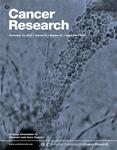- Submit a Protocol
- Receive Our Alerts
- Log in
- /
- Sign up
- My Bio Page
- Edit My Profile
- Change Password
- Log Out
- EN
- EN - English
- CN - 中文
- Protocols
- Articles and Issues
- For Authors
- About
- Become a Reviewer
- EN - English
- CN - 中文
- Home
- Protocols
- Articles and Issues
- For Authors
- About
- Become a Reviewer
Isolation of Mouse Embryo Fibroblasts
Published: Vol 3, Iss 18, Sep 20, 2013 DOI: 10.21769/BioProtoc.908 Views: 20786
Reviewed by: Lin Fang

Protocol Collections
Comprehensive collections of detailed, peer-reviewed protocols focusing on specific topics
Related protocols

Isolation of Murine Alveolar Type II Epithelial Cells
Fan Sun [...] Zhaoxia Qu
May 20, 2017 13109 Views

Soft Agar Colony Formation Assay as a Hallmark of Carcinogenesis
Feng Du [...] Daiming Fan
Jun 20, 2017 30552 Views

A Fast and Reliable Method to Generate Pure, Single Cell-derived Clones of Mammalian Cells
Zhe Han [...] Varun Kumar
Aug 20, 2022 4100 Views
Abstract
Preparation of primary cultures of embryo fibroblasts from genetically engineered mouse strains can provide a valuable resource for analyzing the consequences of genetic alterations at the cellular level. Mouse embryo fibroblasts (MEFs) have been particularly useful in cancer research, as they have facilitated the identification of the genetic changes that allow cells to overcome senescence and proliferate indefinitely in culture. The immortalized MEFs can then acquire additional mutations that lead to anchorage-independent growth and the ability to form tumors in mice. Recently we developed an MEF model system for analysis of the role of the tumor suppressor gene DLC1 in cellular transformation (Qian et al., 2012). In this communication we describe a protocol for the isolation of MEFs from day 13.5-day 14.5 mouse embryos. The MEFs obtained by this procedure are suitable for use in biochemical assays and for further genetic manipulations.
Keywords: Mouse embryo fibroblastsMaterials and Reagents
- Mice 13-14 days pregnant
- Phosphate buffered saline (PBS), without Ca2+ and Mg2+ (Life Technologies, Gibco®, catalog number: 10010 )
- Dulbecco’s Modified Eagle’s Medium (DMEM) containing 4.5 g/L D-glucose (Life Technologies, Gibco®, catalog number: 11960044 or Mediatech, catalog number: 15-017-CV )
- Fetal bovine serum (Atlanta Biologicals, catalog number: S11550 )
- L-glutamine (Life Technologies, Gibco®, catalog number: 25030-149 )
- 1x penicillin-streptomycin solution (Gibco, catalog number: 15140-148 )
- 0.25% trypsin-EDTA (Life Technologies, Gibco®, catalog number: 25200 )
- 70% ethanol
Note: Prepare in a sterile container with sterile distilled water.
- Dimethyl Sulfoxide (DMSO) (Sigma-Aldrich, catalog number: D8418 )
- MEF culture medium with 10% fetal bovine serum (see Recipes)
Equipment
- Plastic dissecting board or thick pad of blotting paper (such as Schleicher and Schuell GB004 paper)
- Masking tape or push pins
- Sterile Fine scissors (at least 3)
- Sterile Fine forceps (at least 3)
- Sterile 4 x 4 gauze pads (available from vendors of medical supplies)
- Sterile scalpel blades or single-edge razor blades
- Examination gloves
- Petri dishes (100 mm) (BD Biosciences, Falcon®, catalog number: 351029 , or equivalent)
- Sterile plastic serological pipettes, 5 and 10 ml
- Sterile disposable tubes (50 ml) (BD Biosciences, Falcon®, catalog number: 352070 , or equivalent)
- T75 tissue culture flasks (Corning, catalog number: 430641 , or equivalent)
- 37 °C 5% CO2 tissue culture incubator
- Tissue culture hood
- Inverted microscope
- Cryovials (such as Nunc®, catalog number: 375418 )
Procedure
- Harvest embryos from female mice 13-14 days after the appearance of the copulation plug. The female should be obviously pregnant at this stage.
Note: Depending on the viability of the particular strain, 6-10 embryos can be expected from each pregnant female, and they should yield enough MEFs for several experiments.
- Euthanize the pregnant female by cervical dislocation (this can be done on the bench top, outside of the tissue culture hood.). Place the mouse on its back on a dissecting board or on a thick pad of blotting paper.
- Thoroughly soak the fur of mouse with 70% ethanol. Transfer the board or pad with the mouse to the tissue culture hood.
- Make a cut in the skin with scissors, then grab the skin with both hands and pull away to expose the abdominal wall. Use tape (or pins) to attach the feet of the mouse to the board (or pad).
- Put 10 ml of 0.25% trypsin-EDTA in one covered Petri dish and put approximately 20 ml PBS in another Petri dish.
- Set aside the scissors that were used to cut the fur, and put on a new pair of gloves. With new scissors, cut through the abdominal wall. Use forceps to lift up the uterine horns and cut away the uterus with scissors. Be careful not to let the uterus touch the fur. Place the uterus in the Petri dish with PBS.
Note: Scissors and forceps can be placed in inverted Petri dish lids when not in use, and they can be cleaned by wiping with gauze pads wetted with 70% ethanol.
- Separate the embryos by slicing through the uterus in the regions between each embryo. The embryos may pop out spontaneously or they may come out after pressing gently with forceps. If they do not come out easily, carefully cut away the uterine tissue starting at the site where the dark red, disc-shaped placenta is located. If the embryo is still in the yolk sac, gently pull the sac off with forceps.
- Transfer the embryos to a new dish with PBS – use one dish of fresh PBS for every 3 embryos. Swirl the dish to remove blood from the embryos.
- With one hand, pick up an embryo with forceps and with the other hand, cut off the head above the eyes. Use another pair of forceps to tear out the red tissue (heart and liver). Place the rest of the embryo in the covered Petri dish with 0.25% trypsin-EDTA.
- After all the embryos have been isolated and placed in the dish with trypsin, chop up the embryos with scissors, and then use a scalpel blade or razor blade to mince the tissue into pieces of 1-2 mm. Pipet up and down several times with a 10 ml pipet, and then place the dish in the 37 °C tissue culture incubator for 10 min.
- Remove the dish from the incubator and pipet the embryo pieces up and down several times with a 5 ml pipet. Return the dish to the incubator for another 5-10 min.
- Transfer the cell suspension to a 50 ml tube. Add 20 ml MEF culture medium (see Recipe below) to inactivate the trypsin, and pipet up and down several times. Let the cell suspension sit for about 5 min to allow larger embryo fragments to sink to the bottom of the tube.
- Transfer the supernatant, consisting of single cells and cell clusters, to T75 flasks. Each flask should receive a volume of the cell suspension equivalent to 3 embryos. Add MEF culture medium to the flasks so that the total volume is 15-20 ml.
Note: if some cell lysis has occurred, the cell suspension may be viscous, and it may not be possible to avoid transferring the larger fragments to the flasks. This is not a major problem, since some fibroblasts will migrate out from the tissue fragments and attach to the dish.
- The following morning, remove the old medium (with dead cells and debris) and replace with fresh medium. Check the cells later in the day; if the culture is very dense, split into 3 T75 flasks. Otherwise, split the cells on the following day or when they reach confluency. This is passage number 1.
- When cells are confluent, harvest by trypsinization, spin down, and resuspend the cell pellet in freezing medium (MEF culture medium with 10% fetal bovine serum and 10% DMSO). Aliquot the MEFs into cryovials and freeze the cells using standard methods for mammalian cell cryopreservation.
Note: Some protocols call for 20% fetal bovine serum in the freezing medium, but 10% has worked for us.
- The MEFs will senesce faster if plated at low density. As the growth of the cells begins to slow down after several passages, the number of cells transferred per flask should be increased with each passage.
- After around 10 passages, the MEFs will reach the crisis phase when cell proliferation has greatly decreased. Immortalized lines can be derived in several weeks by following the protocols of Todaro and Green (Todaro and Green, 1963). We have found that immortalized MEF lines can be obtained after around 18 passages when all of the cells in a dish or flask are harvested and replated in fresh medium every 5 days.
Recipes
- MEF culture medium with 10% fetal bovine serum
Mix 450 ml DMEM with 50 ml fetal bovine serum
5 ml 200 mM L-glutamine
5 ml 100x penicillin-streptomycin solution
Acknowledgments
This protocol was based on the method of Todaro and Green (1963) and subsequent modifications of the technique, as described in publications such as Coats et al. (1999). This work was supported by the Intramural Research Program of the Center for Cancer Research, National Cancer Institute, National Institutes of Health.
References
- Coats, S., Whyte, P., Fero, M. L., Lacy, S., Chung, G., Randel, E., Firpo, E. and Roberts, J. M. (1999). A new pathway for mitogen-dependent cdk2 regulation uncovered in p27(Kip1)-deficient cells. Curr Biol 9(4): 163-173.
- Qian, X., Durkin, M. E., Wang, D., Tripathi, B. K., Olson, L., Yang, X. Y., Vass, W. C., Popescu, N. C. and Lowy, D. R. (2012). Inactivation of the Dlc1 gene cooperates with downregulation of p15INK4b and p16Ink4a, leading to neoplastic transformation and poor prognosis in human cancer. Cancer Res 72(22): 5900-5911.
- Todaro, G. J. and Green, H. (1963). Quantitative studies of the growth of mouse embryo cells in culture and their development into established lines. J Cell Biol 17: 299-313.
Article Information
Copyright
© 2013 The Authors; exclusive licensee Bio-protocol LLC.
How to cite
Durkin, M. E., Qian, X., Popescu, N. C. and Lowy, D. R. (2013). Isolation of Mouse Embryo Fibroblasts. Bio-protocol 3(18): e908. DOI: 10.21769/BioProtoc.908.
Category
Cancer Biology > General technique > Cell biology assays > Cell isolation and culture
Cell Biology > Cell isolation and culture > Cell isolation
Do you have any questions about this protocol?
Post your question to gather feedback from the community. We will also invite the authors of this article to respond.
Share
Bluesky
X
Copy link









